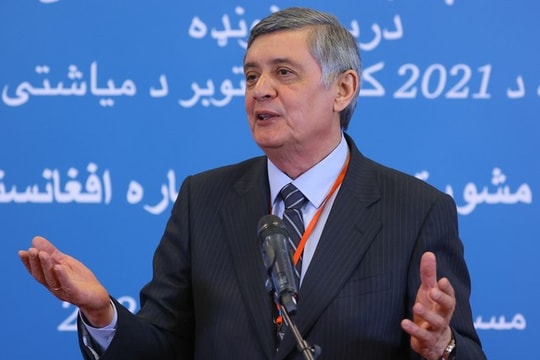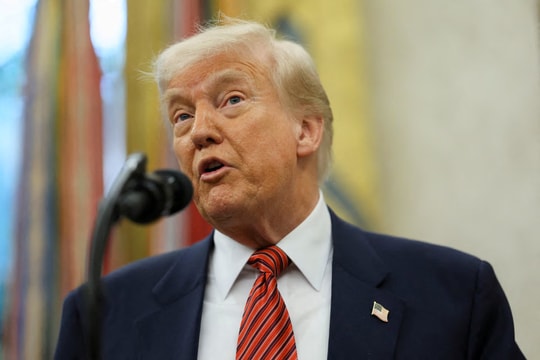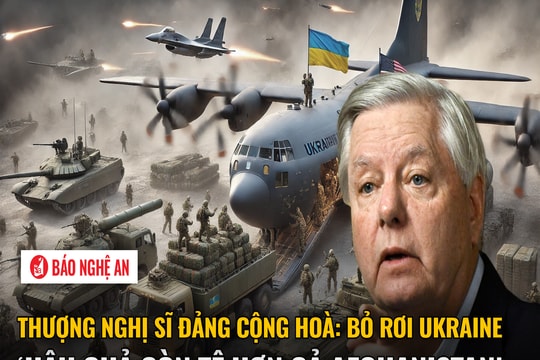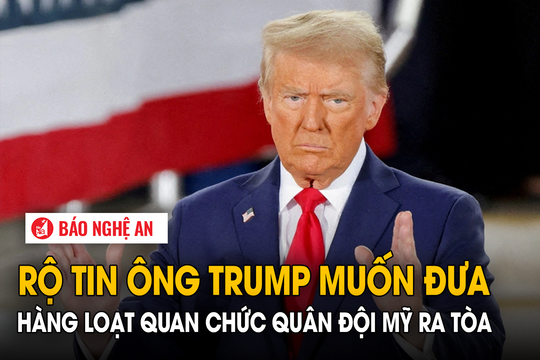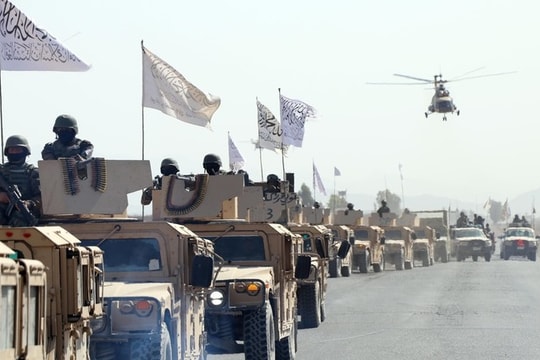Has America run out of patience with the 'game of thrones' in Kabul?
(Baonghean) - The "historic" agreement between the US and the Taliban was signed by both sides in February, but so far, the Afghan government is said to have shown no progress on the contents of that agreement. Public opinion is skeptical, could the current situation force White House owner Donald Trump to unilaterally withdraw troops from this country that has been tormented by war for many years?
Know it's entangled but hard to untangle
According to DW, Washington and the Taliban signed a historic agreement, with the ambition of ending the 19-year conflict in Afghanistan on February 29. However, since then, the implementation of the provisions of this document has not made much progress.
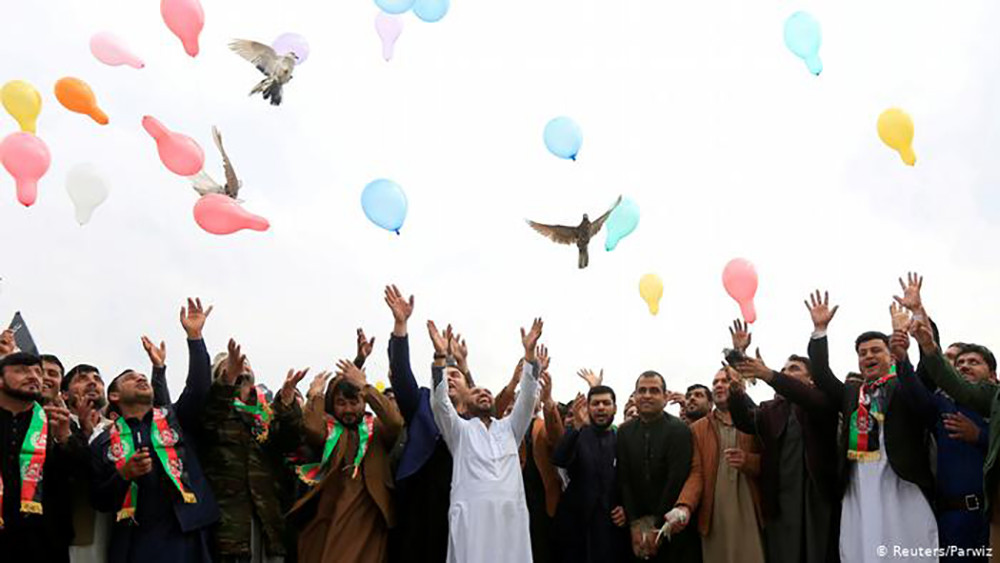 |
| Celebrating the agreement signed between the US and the Taliban in Afghanistan in February. Photo: Reuters |
One of the notable contents is the agreement requiring Afghan authorities to release up to 5,000 Islamist prisoners in exchange for about 1,000 pro-government prisoners.
Prisoner release is a prerequisite for a long and complex intra-Afghan dialogue, which was originally planned for March 10.
But the Afghan government has so far shown little enthusiasm, even reluctance, for releasing Taliban prisoners. It has set another precondition: that the group of gunmen must immediately cease all attacks.
On the other side of the battle line, the Taliban argue that a reduction in violence is enough to secure the freedom of the detained fighters. Suhail Shaheen, spokesman for the Taliban's political office in Qatar, argues that the Afghan government is simply making excuses to delay the release of prisoners.
Showing no sign of backing down, Shaheen stressed: “But let me be clear: intra-Afghan negotiations will not begin until Kabul releases all our prisoners.”
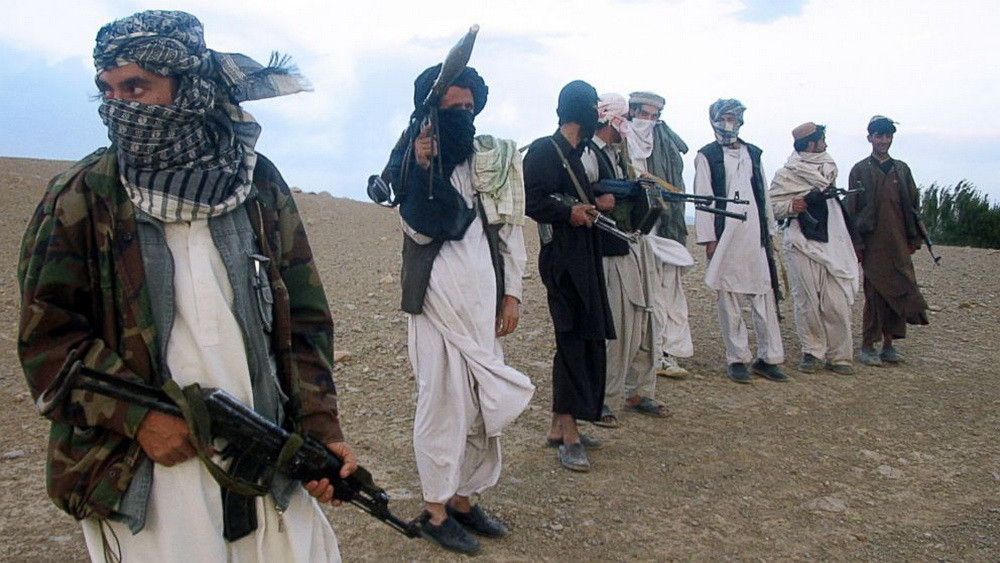 |
| Taliban gunmen. Photo: AFP |
President Ashraf Ghani's government released 100 Taliban prisoners this week, but the move was not enough to satisfy the insurgents. Media sources said the Taliban hoped Kabul would first release 15 of its imprisoned commanders.
Matin Bek, a negotiator representing the local government, also spoke to the press, saying that they do not want to release those who “murdered the people” and do not want these figures “to return to the battlefield and occupy territories”.
Analyzing the current dilemma, South Asia expert Michael Kugelman, working at the Woodrow Wilson International Center for Scholars, based in Washington, said that the problem lies within the agreement between the US and the Taliban.
He analyzed that the problem is that the bilateral agreement between the United States and the insurgents in Afghanistan is asking for "sky-high" things, or in other words, it is expecting to achieve too much in too short a period of time.
Of course, according to Kugelman, the “major stumbling block” is none other than the issue of prisoner release. “And the problem is that neither side is willing to compromise.”
Amid the standoff, the Taliban have added fuel to the fire, accusing the US of violating the Doha agreement by targeting their fighters. “The Doha agreement clearly states that the US can only defend itself in certain circumstances,” said Shaheen, the spokesman.
The US military will not attack our Islamist fighters or conduct raids at night. These actions could jeopardize the agreement.”
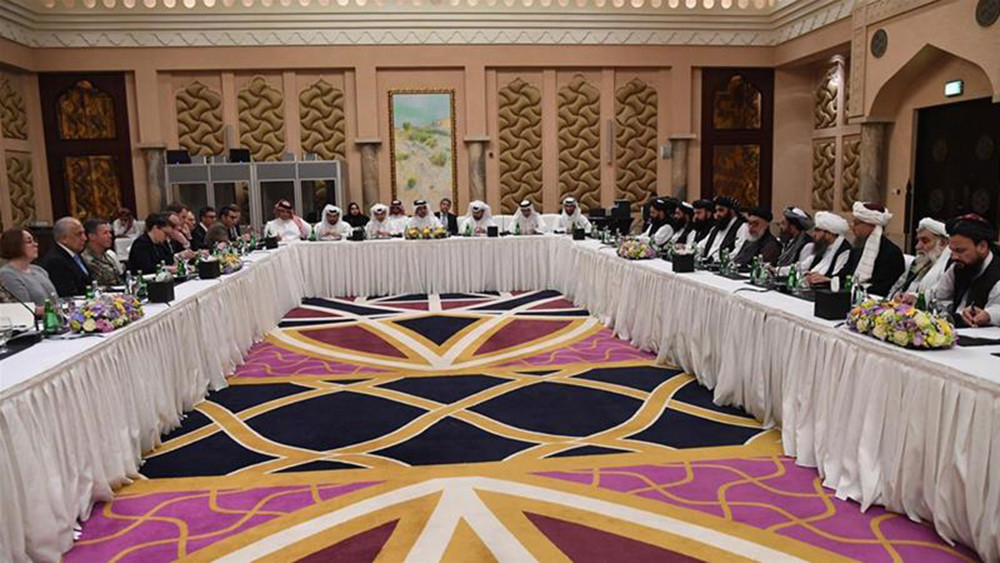 |
| A negotiation between the US and the Taliban in Doha, Qatar. Photo: Al Jazeera |
Furthermore, the Taliban leadership is said to be unhappy with what they see as Washington's failure to get the Afghan government to implement the agreement. The group wants the next stages of the signed agreement to be completed soon.
In this regard, expert Kugelman analyzes the difference: “The US-Taliban negotiations are different, because in that case each side has a clear goal: that is, to negotiate an agreement leading to a US withdrawal plan. With the intra-Afghan dialogue, things are much more complicated and have many different dimensions.”
Will the US act unilaterally?
Objectively, implementing the Doha agreement with Washington is not an easy task. Especially when Afghanistan's political crisis is showing signs of worsening, since both Mr. Ashraf Ghani and his rival Abdullah Abdullah declared themselves president after last year's election.
US Secretary of State Mike Pompeo recently warned leaders in Kabul that Washington could cut financial aid to the war-torn country if Ghani and Abdullah do not soon reach an agreement.
From the perspective of experts, it seems that Mr. Ghani is afraid that he will not be able to continue to hold power after launching a formal peace process.
This is because an interim government may be required to oversee the peace process, or even a new political arrangement, which risks marginalizing Ghani.
“For those reasons, Mr. Ghani will do everything possible to protect his grip on the presidency during this uncertain period — and that requires making no concessions to Abdullah.”
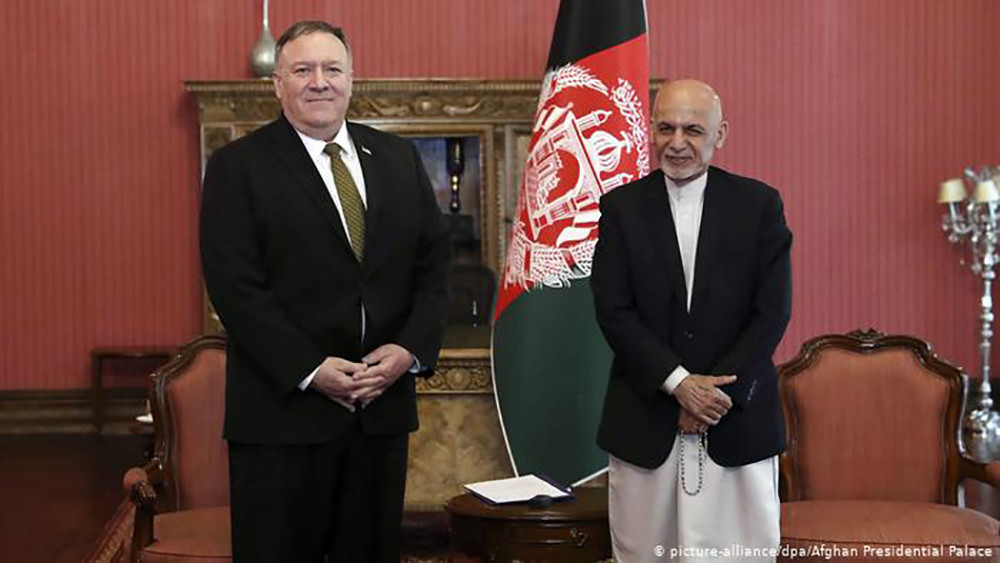 |
| US Secretary of State Mike Pompeo during a meeting with Afghan President Ghani in Kabul on March 23. Photo: DPA |
As mentioned, the current situation may force US President Trump to consider and act on his own. The US leader wants to withdraw all troops before the presidential election in November, and observers say the patience of the Oval Office owner is limited.
It can be simply imagined as follows: if the peace process remains stagnant and intra-Afghan negotiations do not begin, it is possible that the Washington administration will abandon mediation efforts, narrow the scope of involvement, and possibly even accelerate the withdrawal of troops from Afghanistan.
For many, it seems that the success or failure of the peace process in Afghanistan now lies in the hands of President Ghani and his team.
That is also the view of expert Naseer Weyar, living in Kabul: “If Mr. Ghani manages to reach peace with Abdullah and at the same time keep the US on the same side, the peace process can move forward. If not, Washington can look for another partner in Afghanistan.”

